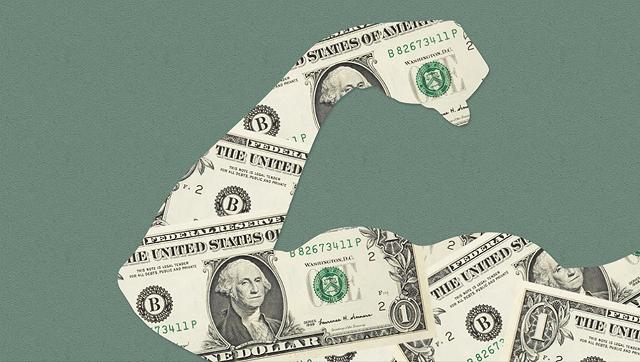The US Dollar has been steadily increasing since 2014; with a 5% increase rate in the GDP from July to September, the fastest pace in more than a decade. Specifically; right after nearly 3 million jobs were created and the boom in North American oil production as well as the crash in the prices of oil have helped boost the Dollar value. This has also motivated the investors wanting to get a piece of it.

But why is this a problem for the US?
The exsessive demand on Dollar and other factors have increased the Dollar’s value against other currencies and caused manufactoring companies to struggle competing as the currency became too strong. The improved trade balance caused more dollars staying in homeland, tightening the supply outside the U.S and made them become less competitive globally.
However, Donald Trump wants to pump up the volume of American exports but he won’t be successful unless the value of the Dollar decreases and becomes more attractive to importers of US goods and services. Theoretically, it will also help to create more jobs in the manufacturing sector and in service sectors which sell to foreign countries.
What could possibly be the benefit of a strong Dollar?
A strong Dollar has a number of positive impacts on the US economy. The most palpable ones would be; making imported goods cost-effective for other countries and attracking more investors and foreign companies. Additionally, a stronger Dollar will preserve the Treasury Department’s borrowing costs low. This means that when the US borrows additional capital or rolls over existing debt, fewer federal spending is devoted to interest payments than would be under a weak Dollar scenario. Additionally, the consumers will be able to benefit from a strong Dollar in getting cheaper mortages and other loans.
What can Donald Trump and US policymakers can do?
The US Dollar like other curriencies float freely in the currency markets, and as a rule, the federal government doesn’t act directly to influence its value against global currencies. Thus, except taking active measures to keep the Dollar, there is not much the policymakers and Donald Trump can do. In fact, Dollar continued to gain value even after FED’s implementation of monetary policy to keep interest rates at rock bottom in an effort to spur some degree of inflation. On the other hand, Donald Trump’s policies on tax cuts might increase the growth considerably. Surely, the IMF have increased their 2017 and 2018 US growth prognosis by 0.1% and 0.4% correspondingly with Trump’s election victory.


 Hot Features
Hot Features













